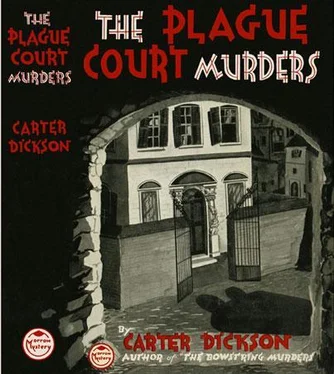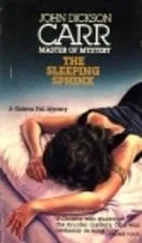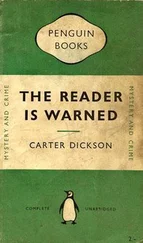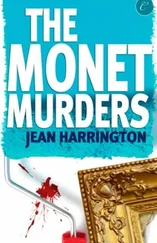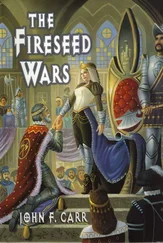"Go on."
"Then I did definitely hear two footsteps directly behind me; but I've got pretty good ears, and nobody else seemed to notice it until-well, all of a sudden I felt Marion go stiff, and she pressed my hand. I admit I nearly jumped out of my skin. I felt her other hand come out towards me, and she was trembling all over.... It wasn't till afterwards that I found out what had gone past and touched her.... You'd better tell him, Marion
Though she tried to keep her former self-control, the old terrors were coming back. The lantern was at her feet, throwing spangles of light up across the white, lovely, tortured face as she slowly looked up.
"It was the handle of a knife," she said, "touching the back of my neck."
XII WHAT WAS MISSING AT DAWN
THE last candle on the work-bench had puffed out in a welter of grease. A faint, grayish light was stealing into the passage beyond; but the shadows in the kitchen were still thick, and the lantern burned at their core below Marion Latimer's dull face. It was the climax of the night's horrors, the last voice of them before they paled at cockcrow. I looked round at Masters, and at McDonnell, almost invisible back in a corner. But I thought, curiously enough, of a room situated high over Whitehall; and, in the midst of the sedate government upholstery, a fat man sitting with his feet on the long desk reading a cheap novelette. I had not seen that room since 1922....
"You see," Marion told us carefully, after a pause, "the idea of some one of us prowling like that was-was rather more ghastly than the other."
Masters expelled his breath. "How did you know it was the handle of a knife, miss?"
"It was feeling-it was the handle, you know, and then the crosspiece, the hilt, together: brushing past. I'd swear to it. Whoever had it must have been holding it by the blade, you see."
"As though the person holding it had tried to touch you?"
"Oh, no. No, I don't think so. It jumped back at once,, if you understand what I mean. It was as though somebody had gone in the wrong direction in the dark, and accidentally brushed me. . . . Anyway, it was after that - maybe a minute afterwards, though it's awfully hard to be certain - I heard the only footstep I could be sure of. It seemed to come from the middle of the room somewhere."
"You heard this too?" Masters asked Halliday.
"Yes."
"And then-?"
"And then the door squeaked. There was a draft along the floor, too. Hang it all," said Halliday uneasily, "surely everybody must have felt it! You couldn't miss."
"It 'ud seem so, wouldn't it? Now, sir, how long after all this did you hear the bell ringing?"
"Marion and I have compared notes on that. She estimates something over ten minutes. but I say nearer twenty."
"Did you hear anybody coming back?"
Halliday's cigarette was burning his fingers; he glanced at it as though he had never seen it before, and dropped the stump. His eyes were vacant. "Shouldn't like to swear to more than that, Inspector. But I should say there was a pretty definite noise of somebody sitting down. That was before we heard the bell, but I don't remember how long. It's all a matter of guesswork, anyhow...."
"When the bell rang, was everybody sitting down?"
"I can't tell you, Inspector. There was a rush for the door, and either Marion or Aunt Anne screamed
"It wasn't I," said the girl.
Masters glanced slowly from one to the other of them. "The door to that room," he said, "was closed while you were having your meeting. I saw that myself. When you rushed out as the bell rang, was it open or closed?"
"I don't know. Ted was first at the door, because he was the only one with a flashlight. Marion and I crowded after him - anywhere we could see a light we'd have gone, and he switched his on then. The whole affair was so confused that I don't remember. Except that Featherton got a match struck to light the candles, and shouted, 'Wait for me!' or something like that. Then I think we all realized the futility of dashing out that door - I don't know who started the rush in the first place; it was like sheep following a leader. So-" He waved his hand. "Look here, Inspector, haven't we told you enough for one night? Marion is dead exhausted...."
"Yes," said Masters, "yes. You may go." Suddenly he looked up. "Young Latimer - wait a bit!-young Latimer was the only one with a flashlight? Yours was broken; then Mr. Blake gave you his when we heard Miss Latimer calling in the passage?"
Halliday looked at him a moment, and then laughed. "Still suspicious of me, Inspector? Well, you're quite right to be. But, as it happens, I'm strictly innocent in the flashlight business. I gave that one to Ted, at his request. You should ask him, you know.:.. Well, good night." He hesitated, and walked over to me, putting out his hand. "Good night, Mr. Blake. I'm only sorry I dragged you into this mess. But I didn't know, you see. By God, we did start a hare, didn't we?"
... They went out the back door, and we remained in our separate and foolish positions; conscious of a city waking to daylight all around, and only the ashes of a haunted house. Presently McDonnell came over to the work-bench, beginning to sort out the penciled notes he had brought in.
"Well, sir?" Masters addressed me. "What about it? Brain working?"
I said that it wasn't, and added: "Of itself, the conflicting testimony may not be so inexplicable. That is, three people said there was somebody moving about in the room, and two people said there wasn't. But the two people who denied it, Lady Benning and Ted Latimer, were the ones who might be so rapt in concentration or prayer, or whatever it was, that they wouldn't hear it...."
"Yet they all heard the bell fast enough," said Masters. "And it didn't ring at all loudly, I'll swear."
"Yes. That's the part that sticks. . . . Oh, admittedly somebody was lying. And it was as expert lying as we'll probably ever listen to."
Masters got up. "I'm not going to hash the thing over now," he snapped. "Not with a dead brain. I'll forget even the great big snag in the business that's worse than people who can walk over soft mud without leaving footprints. I'll put it out of my mind. And yet I've a hunch - a hunch - I don't know - what is a hunch, anyway?"
"Well, sir," said McDonnell, "I've generally discovered that a hunch is what you call an idea that you're afraid is wrong. I've been having them all evening. For 'instance, it struck me-"
"I don't want to hear it. Lummy, I'm sick of the business! I want a cup of strong coffee. And some sleep. And - wait a minute, Bert. What about those reports you've got? If there's anything interesting, let's have it now. Otherwise let it wait."
"Right you are, sir. Surgeon's report: `Death of a stab wound, made by the sharp instrument submitted for inspection-that's the L.P. dagger-penetrating through...."'
"Where is the blasted thing, by the way?" interrupted Masters, struck with an idea. "I shall have to take it along. Did you pick it up?"
"No. Bailey was photographing it on the table; they set up the table after we'd taken the measurements and shot the scene as it was. It's probably still out on the table. By the way, its blade had been ground to a needle-point sharpness. Doesn't sound like a ghost there."
"Right. We'll pick it up. I don't want our 'man with his back turned’ messing about with it again. Never mind the doctor's report. What about fingerprints?"
McDonnell scowled. "Not a print on the dagger of any kind, Williams says. He says it had been wiped clean, or the chap used gloves; that was only to be expected.... Otherwise, the whole place is alive with 'em. He counted two separate sets of prints aside from Darworth's. The photos will be around this morning. Also a lot of footprints. The place was dusty. No marks in the blood, though, except half a footprint that probably belongs to Mr. Blake."
Читать дальше
